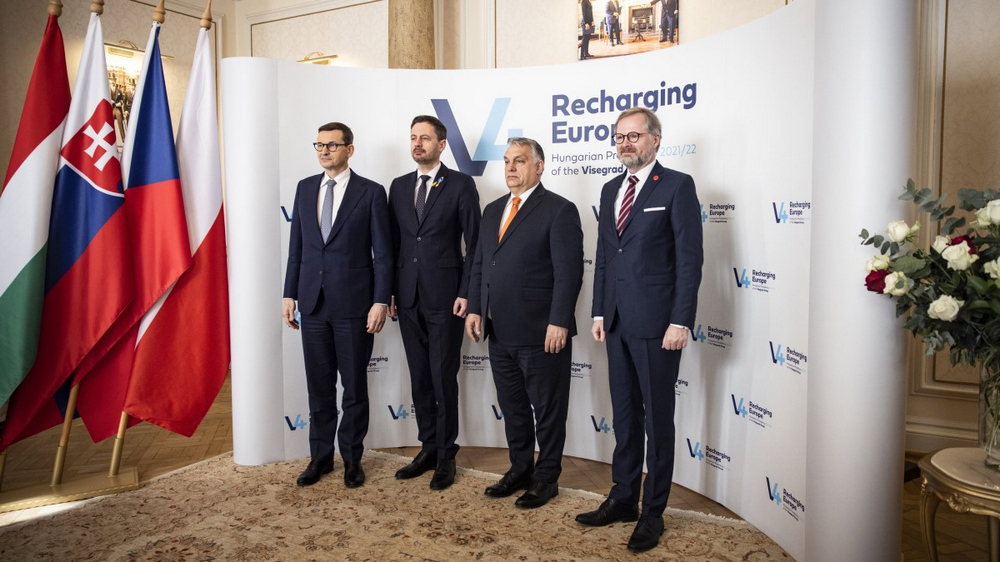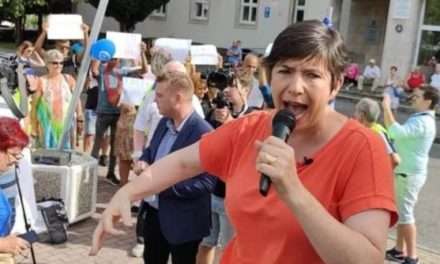According to the head of the Klub Jagiellonski research group operating at the Jagiellonian University, the relationship between Poland and Hungary has "become frozen", while with the Czech Republic and Slovakia "they have never been so close", reports the Notes from Poland news portal, whose article was reviewed by Mandiner .
Pawel Msialek, the head of the Klub Jagiellonski research group at the Jagiellonian University in Poland, wrote in his article published on the news portal that he does not consider it impossible that the V4 could become the V3, since the outbreak of the war reshaped the relations and power relations between the member states.
Msialek pointed out that the war in Ukraine caused a serious political reaction in Central Europe, and there was also confusion in the relations between the countries of the Visegrad group (V4).
The relationship between Poland and Hungary "became frosty" , while with the Czech Republic and Slovakia "they have never been so close" .
According to the author of the article, "it is worth making the most of this opportunity" .
The Hungarians crossed a border after the outbreak of the war
The leader of the research group recalled that before the Ukrainian-Russian war, Poland had the strongest relationship with Hungary. "Budapest was not only Warsaw's most important partner in the region, but also became its most important partner in the EU after the departure of the United Kingdom," emphasized Msialek.
He added that the similarities between the two governing parties, Law and Justice (PiS) and Fidesz, are obvious: both rely on the rural, conservative population against the liberal, metropolitan elites, which also have good relations with the EU elite.
At the same time, the author noted that the leadership in Warsaw and Budapest previously had opposing attitudes towards Russia, but the Hungarians crossed a line by
"after the outbreak of the war, they had an ambiguous attitude towards the attacked Ukraine and the aggressor Moscow".
This is also reflected in the fact that the press under the control of the Hungarian government and the Polish media inform about the developments of the war in a way that is opposed to each other, Msialek wrote.
After the outbreak of the war, even Jaroslaw Kaczynski, the president of the PiS, criticized Hungarian politics, " and previously he was on the same page with Viktor Orbán, the prime minister of Hungary, regarding the greater sovereignty of the EU member states," the expert reminded.
Could Prague be the new Budapest?
In parallel with the decline of Hungary's role, Polish-Czech relations are dynamically strengthening, the article emphasized. Just a few months ago, the main topic of the Warsaw-Prague axis was the dispute over the coal mine in Turów. This issue was not resolved until the end of Babiš's term of office, despite many rounds of negotiations, they recalled.
Of course, Turów was not the only reason why Czech-Polish relations were not strong. Prague criticized the reform of the Polish judicial system. He did not share PiS's European policy either, although the Czechs themselves showed great skepticism towards the EU. The Czech government also did not support PiS in its disputes with the European Commission.
The two countries assess the Russian threat in the same way and subordinate their bilateral relations to it. The best example of this is the case of the Czech-Polish gas pipeline, which until now Prague has not pushed for, but now it considers it as an additional network to the German-Czech-Slovak one. In addition, the transport infrastructure would be improved, which would make Polish seaports more accessible from the Czech Republic, Pawel Msialek pointed out.
Source: Mandarin
Photo: MTI/Prime Minister's Press Office/Zoltán Fischer












